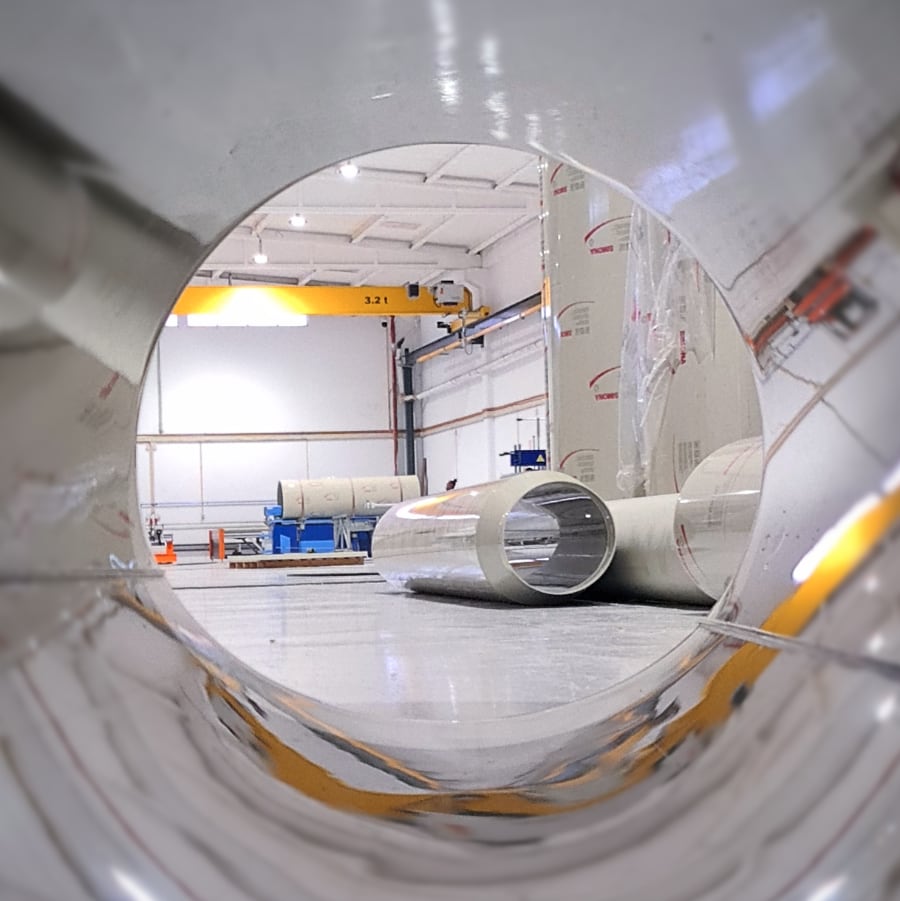A trusted reference in odour treatment and control systems



D-TECH is a PLASFICH brand, dedicated to developing innovative solutions for odour treatment and control
Our expertise covers the design, construction, installation, and commissioning of deodorisation systems tailored to the requirements of various industries.
Where we make a difference
We specialise in technologies for treating industrial odours, offering products and services primarily aimed at the industrial sector.
We have our own highly skilled installation professionals with international experience.

Products and services widely used in wastewater treatment plants, MSW treatment plants, as well as in the chemical, pharmaceutical, electroplating, and other industries.
Ventilation systems
Ventilation systems composed of extraduded ducts or manufactured by cold-rolled PP-H or PE-100 sheets with automatic welding. Construction thicknesses are standardised according to diameter.

Products and sectors served
- Activated Carbon FiltersFiltros de Carvão Ativado
- Conventional biofilter
- Biofilter packed with inert media
- Biotrickling
- Chemical washing
Wastewater treatment plants and pumping stations
- Physico-chemical treatment system
- Easy operation (does not require specialised operators)
- Lower initial capital investment than other technologies
- Wide spectrum of pollutants removed, depending on the type(s) of adsorbent(s) used
- Elimination of H2S and VOCs, mainly
- Small footprint
- Operates either as a standalone treatment system or as a polishing unit in hybrid systems
- Continuous or intermittent operating mode
- Consumption: Fan electrical consumption, replacement of the exhausted adsorbent
Urban and industrial wastewater treatment plants and municipal solid waste treatment facilities
- Biological treatment system
- Low operating cost
- Larger footprint compared to other technologies
- Wide range of gaseous pollutants removed
- Particularly suitable for the removal of low concentrations of H2S and VOCs
- Requires a preliminary air humidification stage or other pre-treatment
- Continuous operating mode
Urban and industrial wastewater treatment plants
- Filtering media durability much higher than that used in conventional biofilters
- Requires a supply of nutrient water (typically filtered secondary effluent or tertiary effluent without chlorine)
- Smaller footprint than a conventional biofilter
- Does not require an air pre-treatment stage
- More robust system than conventional biofilters
- Mixed-media bioreactors improve overall odour removal
- Continuous operating regime
Urban and industrial wastewater treatment plants
- Biological treatment system
- Scrubbing tower with high-surface-area plastic packing for biofilm attachment and enhanced gas-liquid transfer
- Smaller footprint than biofilters due to its design with shorter contact times and higher bed height
- Requires a supply of nutrient water (typically filtered secondary effluent or tertiary effluent without chlorine)
- Continuous operating mode
Urban and industrial wastewater treatment plants, municipal solid waste treatment facilities, pharmaceutical and chemical industries
- Particularly effective for removing water-soluble gaseous pollutants derived from sulphur (hydrogen sulphide and mercaptans) and nitrogen (ammonia and amines)
- Lower initial capital investment than bio-odour control technologies
- Smaller footprint compared to bio-odour control technologies
- Low VOC removal
- Requires legalisation of corrosive liquids storage tanks in accordance with APQ regulations
- Continuous or intermittent operation
- Requires qualified operators
- Overall odour removal efficiency can be improved by connecting a polishing unit (conventional biofilter or activated carbon) in series

Hybrid systems
The right combination of odour control technologies can improve overall removal efficiency and, in certain cases, reduce operating costs.

